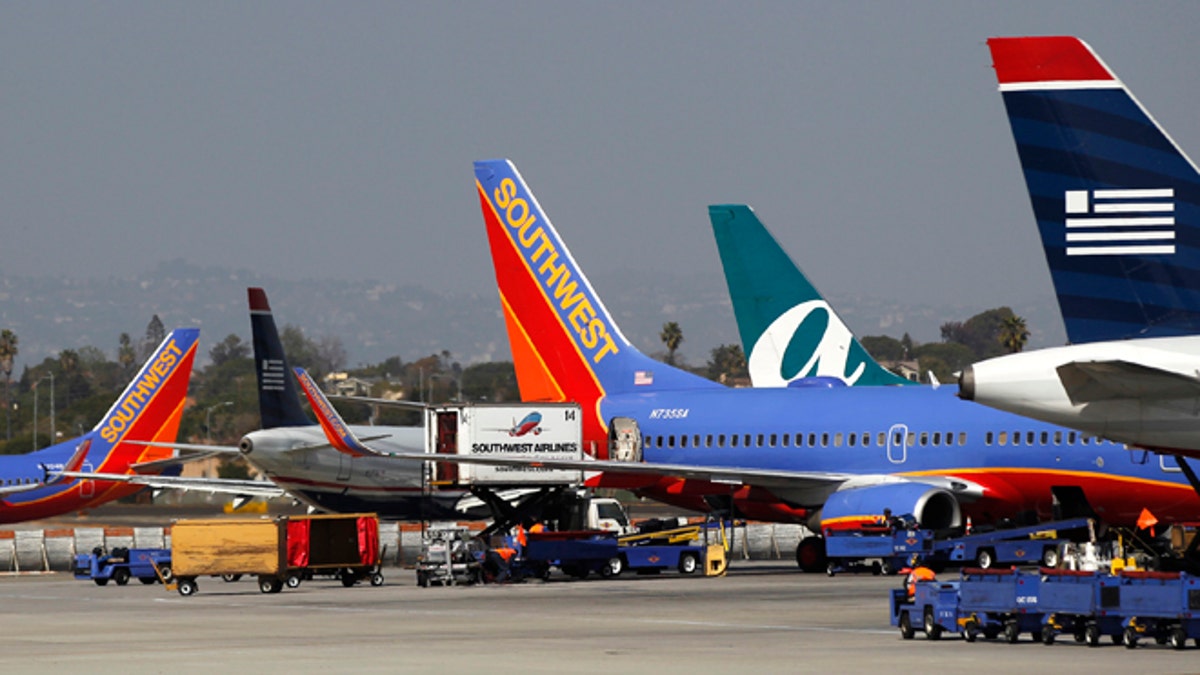
FILE: Airplanes are seen parked at Los Angeles International Airport last March. (Reuters)
The amount and type of flying experience first officers — also known as co-pilots — must have to qualify to fly for an airline will be significantly increased and expanded under new regulations announced Wednesday by the Federal Aviation Administration.
The regulations require first officers to have at least 1,500 hours of flying experience. Airline captains are already required to have at least 1,500 hours. Previously, first officers were only required to have 250 hours of flight time.
The rule also requires first officers to have an aircraft-type rating, which involves additional training and testing specific to the type of airplane they fly.
"The rule gives first officers a stronger foundation of aeronautical knowledge and experience before they fly for an air carrier," FAA Administrator Michael Huerta said.
The FAA said it expects to publish the regulations soon.
The new regulations are required under a sweeping aviation safety law enacted in 2010 in response to the crash of a regional airliner near Buffalo, N.Y., that killed 50 people. The crash was blamed on pilot error.
The regulations are a victory for some family members of victims of the air crash who dedicated countless hours over the last four and a half years first to lobby Congress for passage of the law and later to lobby the Obama administration to carry through with the regulations despite industry opposition.
The law required the FAA implement a series of safety regulations. Changes to the first officer qualifications, which hadn't been changed in many years, are considered among the most important. Two years ago, the FAA adopted regulations required under the safety laws that set new policies governing airline pilot work schedules aimed at preventing dangerous errors made by tired or overworked pilots.
The question of pilot experience is one of the issues that have been raised by the investigation of the crash landing of Asiana Flight 214 in San Francisco over the weekend. Two of the 307 people aboard the plane were killed and scores of others injured.
However, it is unlikely the regulations would have made a difference had they been in place since the pilot flying the Asiana plane had nearly 10,000 hours of flying experience. The pilot, Lee Gang-guk, had recently received his aircraft-type rating and was about half way through has postrating real-world training at the time of the crash.
"Flying in America has never been safer, but the tragic crash of Asiana Flight 214 is an urgent reminder that we must still constantly look for ways to make it even safer," said Rep. Rick Larsen of Washington, the senior Democrat on the House's aviation subcommittee.





















